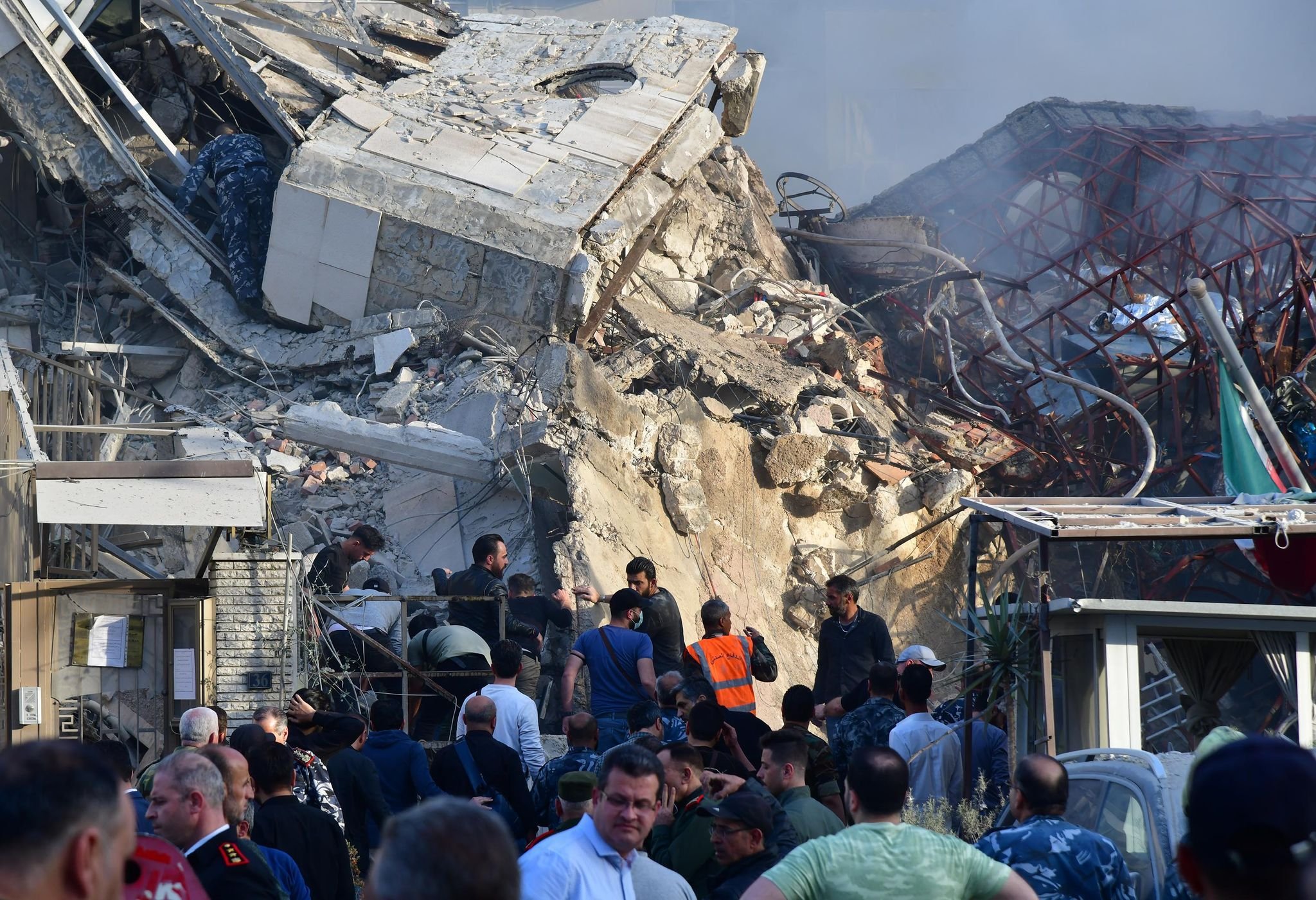After a suspected Israeli airstrike on an Iranian embassy building in Damascus that left seven dead, Iran threatened retaliation, fueling fears of an escalation. “The evil regime will be punished by our brave men. We will make sure that they repent for this and similar crimes, God willing,” said Head of State Ayatollah Ali Khamenei, referring to Israel, according to a statement.
Religious leader Khamenei is the most powerful man in the Islamic Republic and has the final say on all strategic matters. He is also the commander in chief of the armed forces.
On Monday, two brigadier generals and five other members of the powerful Iranian Revolutionary Guards (IRGC) were killed in an air strike on the Iranian embassy compound in the Syrian capital Damascus. According to the Iranian news agency Tasnim, six Syrian citizens were also killed.
The IRGC is Iran’s elite military force and is considered more powerful than its conventional armed forces. Iran’s Foreign Ministry strongly condemned the attack and blamed its arch-enemy Israel for the attack. An Israeli military spokesman said when asked that they do not comment on reports in foreign media.
Direct military reaction from Iran possible
Iran’s President Ebrahim Raisi also threatened Israel with consequences and described the attack as a “terrorist crime.” How and when Iran’s state power will react is still completely open. However, observers interpret the statements of the Iranian head of state Khamenei to mean that military action will be carried out by his own armed forces and not by one of the militias allied with Iran. For example, Tehran could attack Israeli targets in the region. It is considered extremely unlikely that Iran’s Revolutionary Guards will attack Israel directly and thereby risk a regional war.
In mid-January, Iran fired missiles at targets in Iraq and Syria in retaliation for the killing of a high-ranking IRGC officer in late December. A well-known businessman, who, according to Iranian media reports, was suspected of having connections to Israel, was among those killed in northern Iraq. The rockets flew around 1,200 kilometers. This was also interpreted by observers as a clear signal to Israel – because it would be roughly the same distance that rockets from the west of the country would need to reach Tel Aviv or Jerusalem. This time too, Iran could maintain its threatening posture against Israel. Political scientist Thomas Jäger told broadcaster NTV that it is also possible that Iran is targeting US targets in the region.
Observer: Attacks with a new quality
Israel’s air force repeatedly bombs targets in neighboring Syria in an attempt to prevent Iran and its allied militias, such as the Lebanese Hezbollah, from expanding their military influence in the country. Attacks have increased since the Gaza war began almost six months ago. Observers see a new quality in the attacks on the embassy grounds attributed to Israel. In previous operations, IRGC officers were attacked on Syrian soil. But this time it concerns Iranian soil, which is represented by the embassy compound in Syria, wrote Hamidreza Azizi, visiting scientist at the Berlin Foundation for Science and Politics, on the platform X, formerly Twitter.
Several Arab states and China condemned the air strike. A statement from the Saudi Foreign Ministry on Tuesday said attacks on diplomatic facilities constituted a violation of international law and diplomatic immunity. Egypt made a similar statement. The Gulf emirate of Qatar says it views the attack as a “flagrant violation” of international agreements and conventions.
Embassies and consulates are actually generally under special diplomatic protection under international law. In the 1961 Vienna Convention on Diplomatic Relations, Article 22 provides for the inviolability of the premises of a diplomatic mission. In the current case, Syria, as the receiving country, must ensure the security of the consulate of the sending state Iran. What happens if a third country violates the immunity of an embassy is not explicitly regulated in the Vienna Convention.
Killed generals responsible for foreign operations
The generals killed were Mohammed-Reza Sahedi and his deputy Mohammed Hadi Haji Rahimi, the Revolutionary Guard said. Sahedi was responsible for operations in Syria and Lebanon as commander of the IRGC’s foreign unit, according to Iran’s Tasnim news agency.
The Revolutionary Guards are Iran’s elite military force. Founded after the Islamic Revolution in 1979, the unit is intended to prevent a coup and protect the state ideology. The IRGC also operates abroad with the so-called Al-Kuds Brigades. In recent decades, the Revolutionary Guards have not only been upgraded militarily, they have also expanded their social and economic influence. Today, supporters of the IRGC are considered an economic power, with interests in, among other things, hotel chains, mobile phone companies and airlines.
